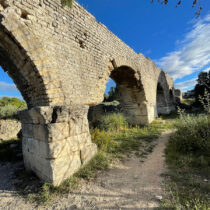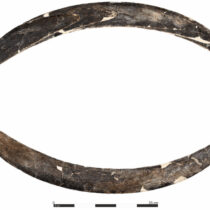The establishment of the Olympic Games in 756 B.C. coincides with radical social changes that led to the creation of the city-state which gradually evolved from the kingdoms of Homer’s time. Ancient Greece, dates back to the Olympic Games in fact, rooted on older traditions going back to the Minoan, or even earlier ages. In the background of the Olympic Games lie a great number of religious beliefs and rituals, quite popular in the eastern Mediterranean during the Neolithic age, which are brought to Greece via the Creto-Mycenaean culture. The nucleus of this religion l theology is the cycle of renewal in nature – succession of life and death – of the world, the societies and their leaders. This theology brings along with it a feeling of security; it gives answers to man’s role in the universe, to his destiny, and places him under the protection of gods and heroes who secure biological renewal and social revival and continuity. Thus, the athletic competition becomes, for mortals, a medium for complete fulfillment. The Panhellenic games are the most impressive part of athletics that comprise nudist, equestrian, poetic and music competitions, found all over Greece during the time of the city-state. The Greek games can be analyzed as follows, on one hand they gave to the participants the chance to express their vital dynamism in a noble competition, which, however, cannot be regarded as an exclusive characteristic of the Greek civilization. J. Huizinga has proved that fundamentally emulation of heroes like Hercules and Theseus comes with all forms of contest, even with the deeds of heroes like Hercules and Thesaeus, who are often confronted with beasts and monsters. Athletic games involve athletes who compete according to rules and undergo a long training. On the other hand, they symbolise a complete range of the imaginary relations of humans with the universe. Finally, the games are a decisive element for the structure and function of the community, since through them, a positive approach to community elements is achieved. This role is particularly obvious in the Olympic Games, where athletes from all Greek cities – even those at waswar – are gathered to participate in a religious and peaceful competition. The Roman games originated in Etruscan and Italian tradition. Although they were influenced, in their evolution, by Greek ideas, they retained their own character and have developed their identity. It is interesting also to mention the lawn-tennis played in the pre-Colombian societies of Central America. In this game, with an old and clear religious meaning, only the aristocracy had the right to participate. The playground symbolized the universe, the ball and the players symbolized the sun and the stars respectively. The simple people, members of the community, were not allowed to play but only to watch. The game was the symbolic representation of the macrocosm and it guaranteed regeneration, renewal and “perpetual return”. As Mircea Eliade points out, the aim is one and the same: “the annulation of time past, the abolition of history through a continuous return in ill tempore, through the repetition of the act of creation”.
Athletic games in Ancient Greece, Rome and central America
27 Jul 2012
by Archaeology Newsroom
- A
- A
- A


